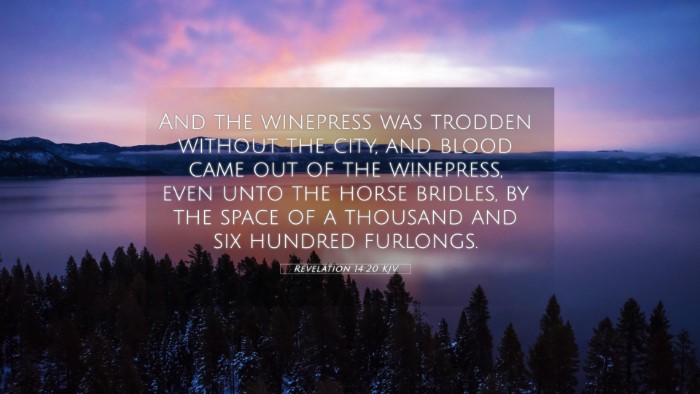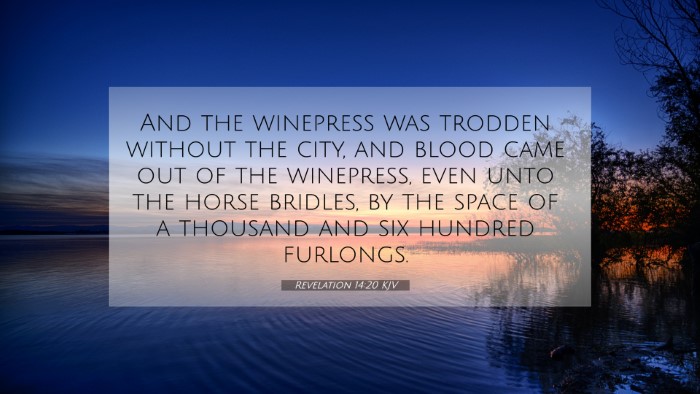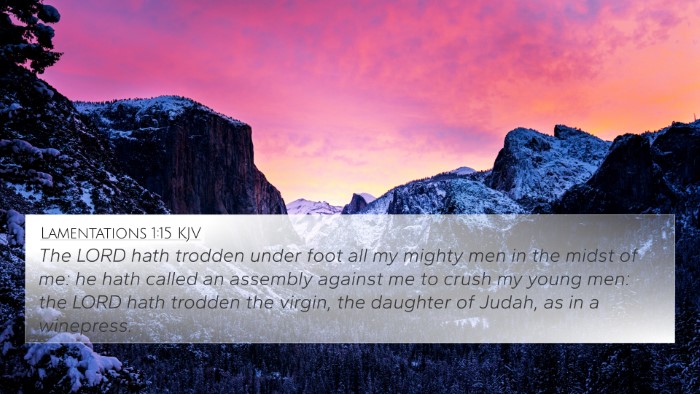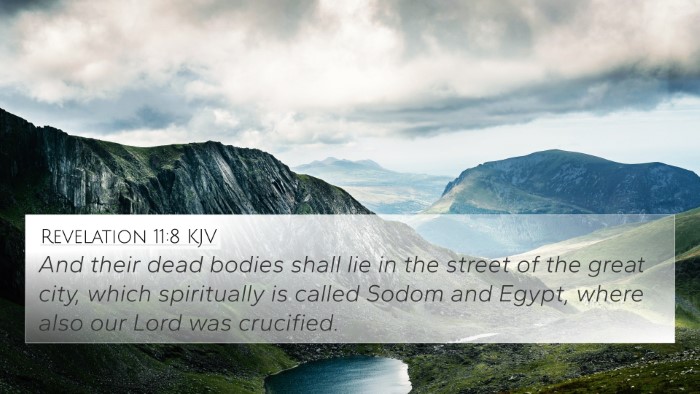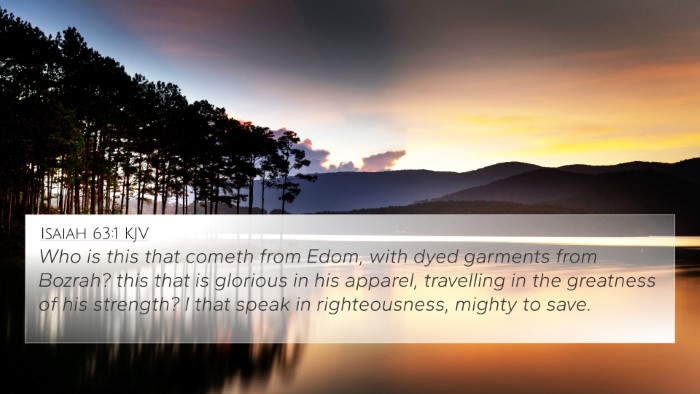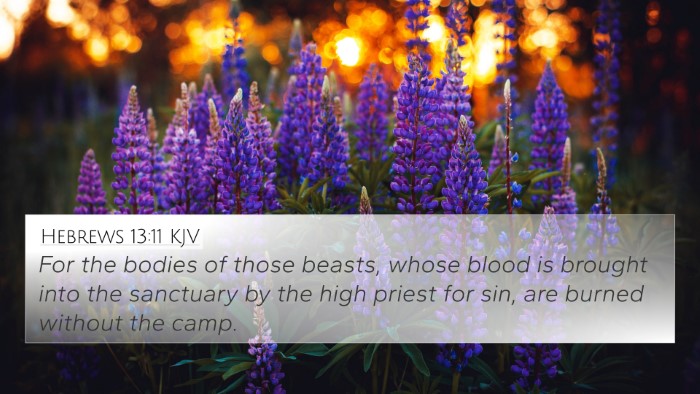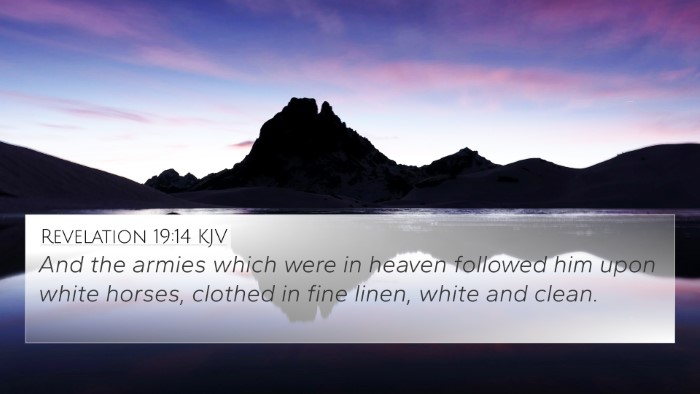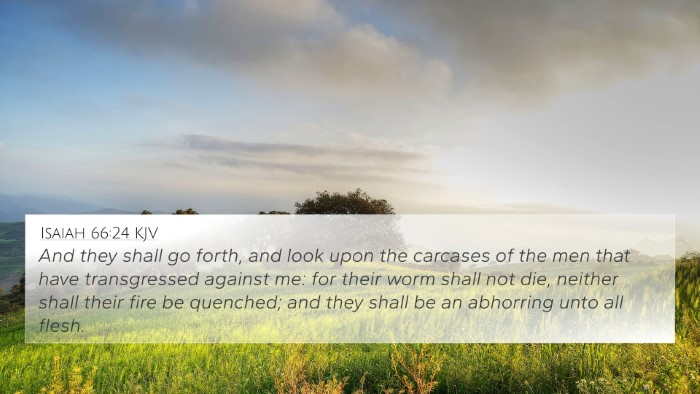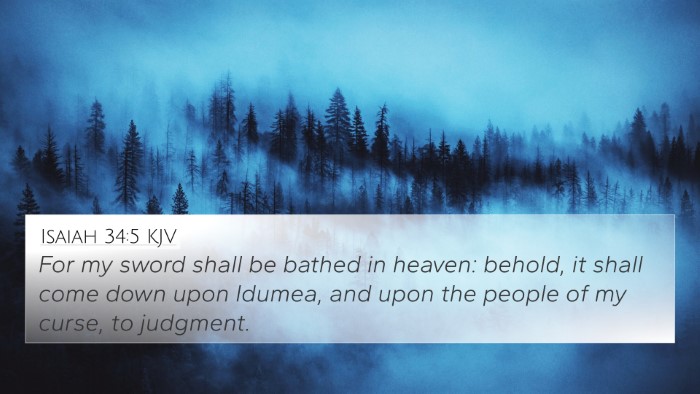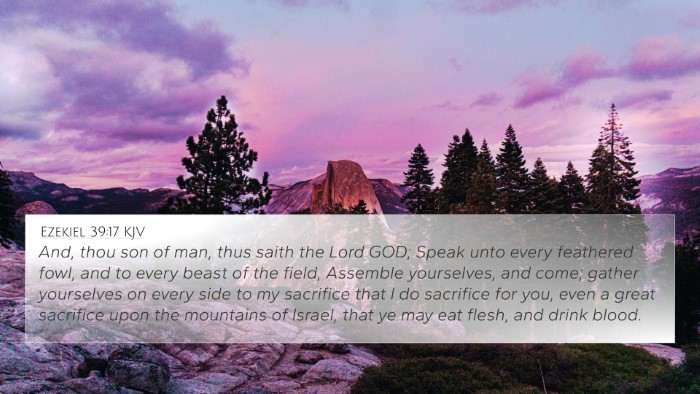Biblical Meaning and Interpretation of Revelation 14:20
Revelation 14:20: "And the winepress was trodden without the city, and blood came out of the winepress, even unto the horse bridles, by the space of a thousand and six hundred furlongs."
Verse Summary
This verse portrays a vivid metaphor concerning divine judgment and the consequences of sin. The imagery of the winepress signifies the outpouring of God's wrath upon the wicked, illustrating the extreme severity of these judgments. The blood flowing to the bridles of horses emphasizes the overwhelming nature of this judgment which extends over a vast area, illustrating both physical and spiritual desolation.
Interpretative Insights
- Matthew Henry: He illustrates this verse as a representation of God’s final judgment and the execution of His wrath on those who oppose Him. The 'winepress' symbolizes the process of separation—much like the grape harvest in which the good is saved and the bad is cast away.
- Albert Barnes: Barnes emphasizes the literal and figurative implications of the bloodshed as reflective of the judgment coming upon the earth's inhabitants who rejected grace. He connects the imagery here to broader biblical themes of retribution and justice.
- Adam Clarke: Clarke elaborates on the apocalyptic imagery used in Revelation, highlighting how the bloodshed symbolizes not just physical death but spiritual death as it signifies separation from God. Clarke also notes the geographical mention of 'a thousand and six hundred furlongs', suggesting the extensive reach of this judgment.
Thematic Connections and Cross-References
This verse resonates with several other biblical themes and has various scriptural parallels, which enhance its understanding:
- Isaiah 63:2-3: "Wherefore art thou red in thine apparel, and thy garments like him that treadeth in the winefat?" - This parallels the imagery of God’s judgment and the consequences of sin.
- Ezekiel 39:18: "Ye shall eat the flesh of the mighty, and drink the blood of the princes of the earth..." - This reflects similar themes of divine wrath leading to calamity.
- Joel 3:13: "Put ye in the sickle, for the harvest is ripe..." - This also evokes the harvest language associated with divine judgment.
- Matthew 13:30: "...gather ye together first the tares, and bind them in bundles to burn them..." - This speaks to the separation at the end of times, connecting with the winepress's symbolism.
- Revelation 19:15: "And out of his mouth goeth a sharp sword, that with it he should smite the nations..." - This connects with the theme of judgment expressed in Revelation 14:20.
- 2 Thessalonians 1:7-9: "And to you who are troubled rest with us, when the Lord Jesus shall be revealed from heaven..." - Presents clarifying context of judgment and retribution for sin.
- Romans 6:23: "For the wages of sin is death..." - This foundational verse underscores the principle of divine justice that Revelation 14:20 brings to culmination.
Bible Cross Reference Tools and Resources
If you wish to dive deeper into cross-referencing biblical texts, consider using the following tools and resources:
- Bible Concordance: A valuable resource for locating verses related to specific words or topics.
- Bible Cross-reference Guide: A helpful study aid for connecting verses throughout the Bible.
- Cross-reference Bible Study methods: Techniques for exploring textual connections and themes.
- Bible Chain References: A method to trace thematic links throughout scripture.
Identifying Connections and User Intent
Understanding the connections between verses can enrich your study:
- What verses are related to Revelation 14:20?
- Find cross-references for Revelation 14:20 through comparison and thematic analysis.
- How do Revelation 14:20 and Isaiah 63:2 connect?
- Similarities between Revelation and the Psalms - highlighting the theme of judgment.
Conclusion
Revelation 14:20 serves as a stark reminder of the reality of divine judgment and the impact of sin. Through cross-referencing this verse with the Old and New Testament, we can gain a deeper understanding of its implications and enrich our spiritual insight.

